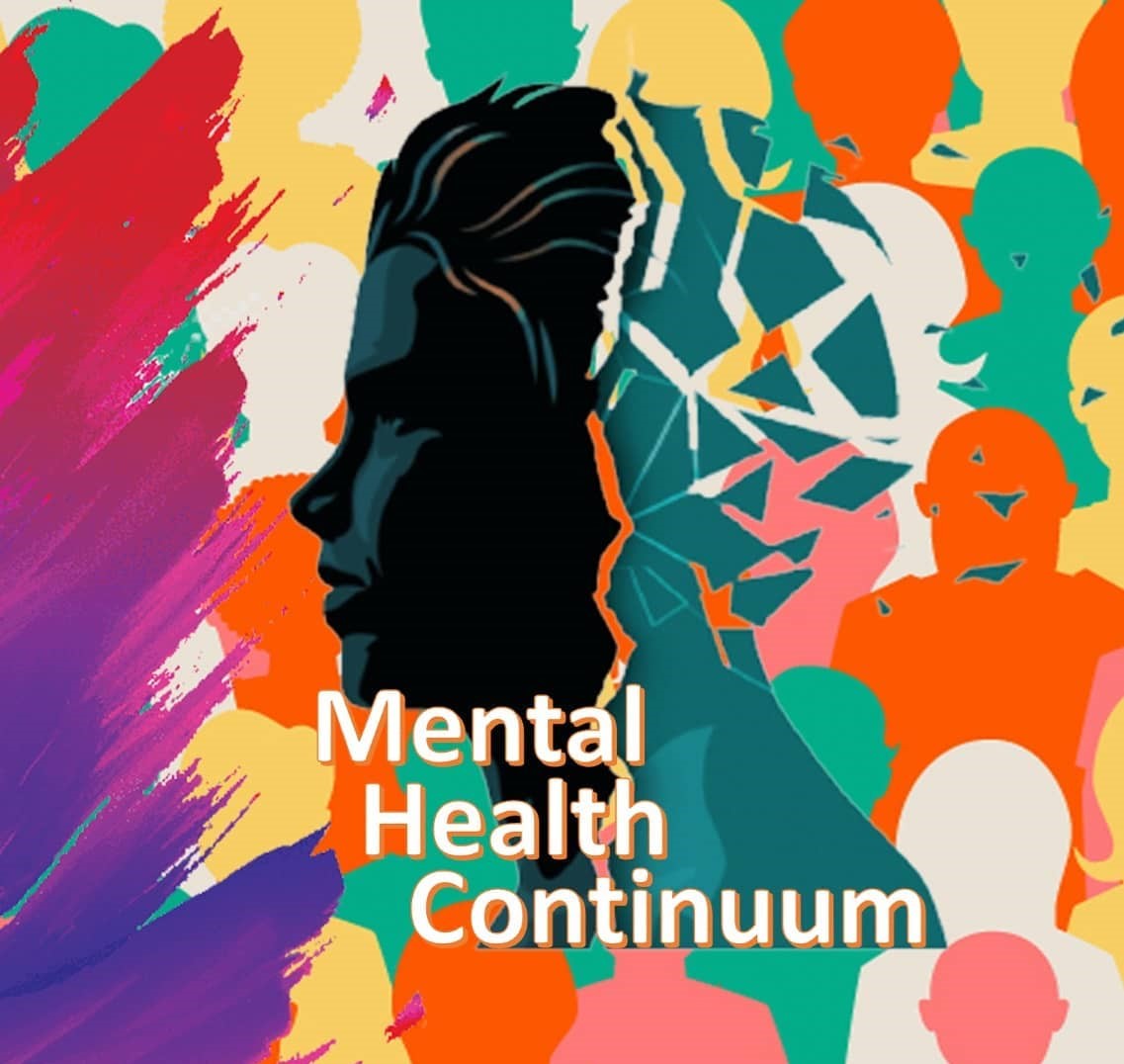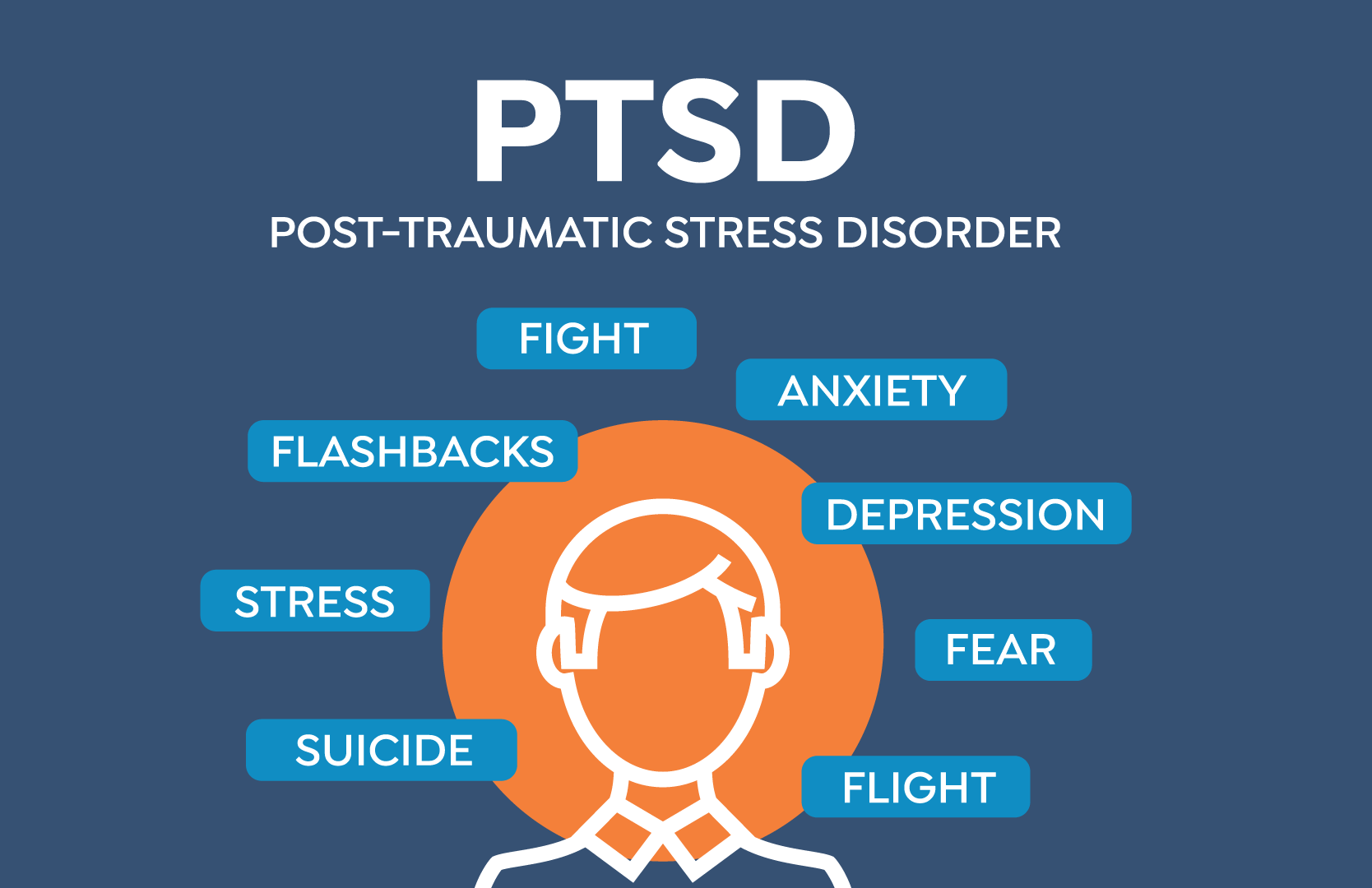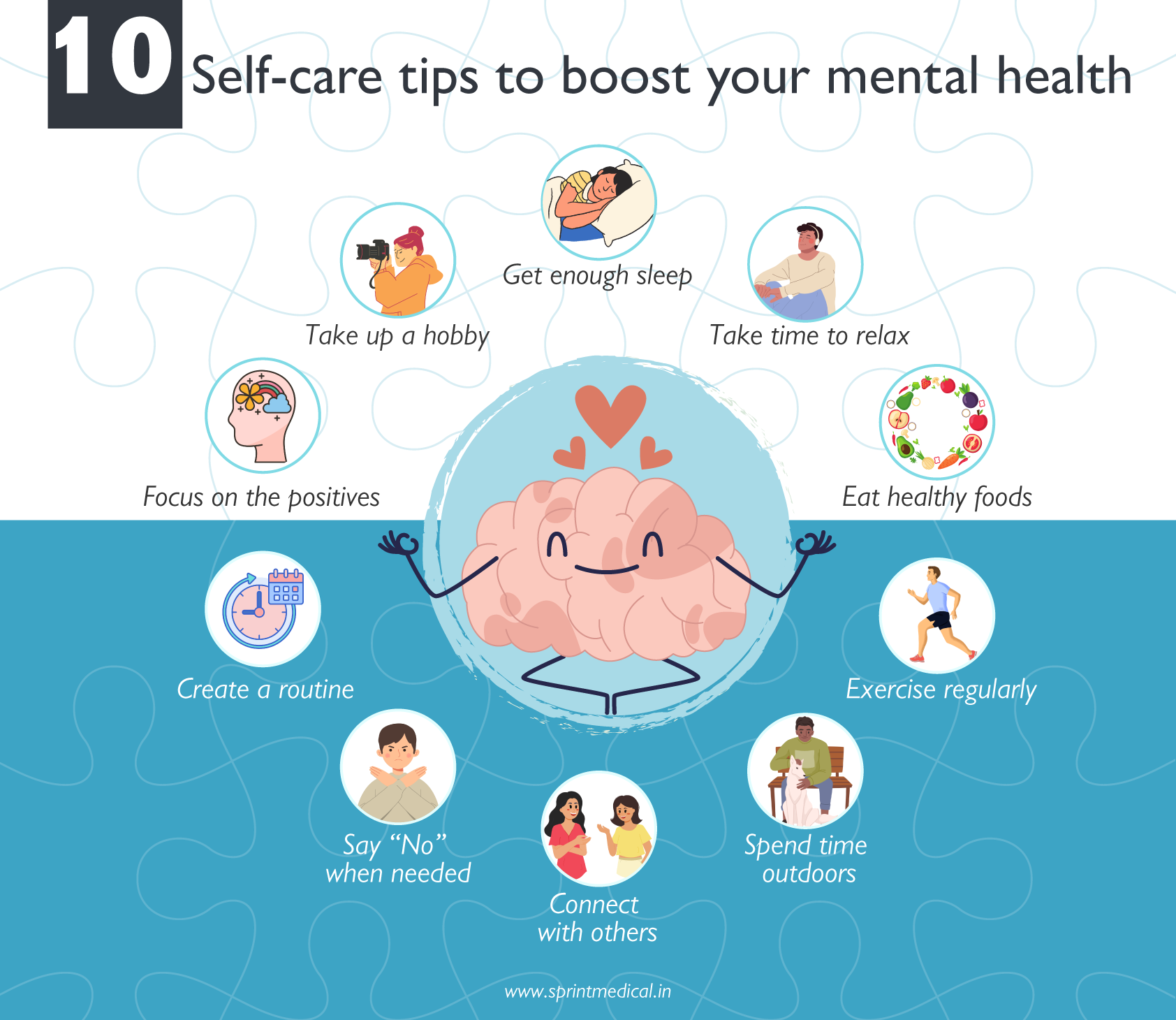1. Get enough sleep
Aim to get 7-8 hours every night. When we don’t get enough rest, our minds and bodies can become over-stressed and exhausted, leading to poor mental health.
2. Take time to relax
Make time for relaxation activities, like deep breathing, meditation, or yoga. Taking time each day to relax can help reduce stress and tension and give your mind a much-needed break.
3. Eat healthy foods
Eating nutritious, balanced meals can give you the energy and nutrients your body needs to stay healthy, even when dealing with stress and anxiety.
4. Exercise regularly
Working out releases hormones, such as endorphins, that can help improve your mood and overall well-being. Find an activity you enjoy, like running, dancing, or playing with your dog, and set aside time each week to do it.
5. Spend time outdoors
Studies have shown that spending time outdoors in nature can reduce stress and enhance mental health. Take a stroll around your neighborhood or explore a nearby park to get some fresh air and sunshine.
6. Connect with others/b>
Having strong social connections is key to good mental health and well-being. Make an effort to reach out to family and friends for moral support and friendship.
7. Take up a hobby
Spending time on hobbies or activities that bring you joy can give you something productive to focus on and help you relax.
8. Say “No” when needed.
It's important to take on only the commitments you can handle. Saying “no” when you need to will help you manage your stress levels and maintain a healthier work/life balance.
9. Create a routine
Having a daily routine can help structure your life and alleviate feelings of stress and disorganization. Find what works best for you and incorporate it into your schedule.
10. Focus on the positives
It’s easy to get bogged down in negative thoughts and feelings, so take time to focus on the positives in your life. Surround yourself with positive people and activities, and practice gratitude.


.png)
.png)

.png)



